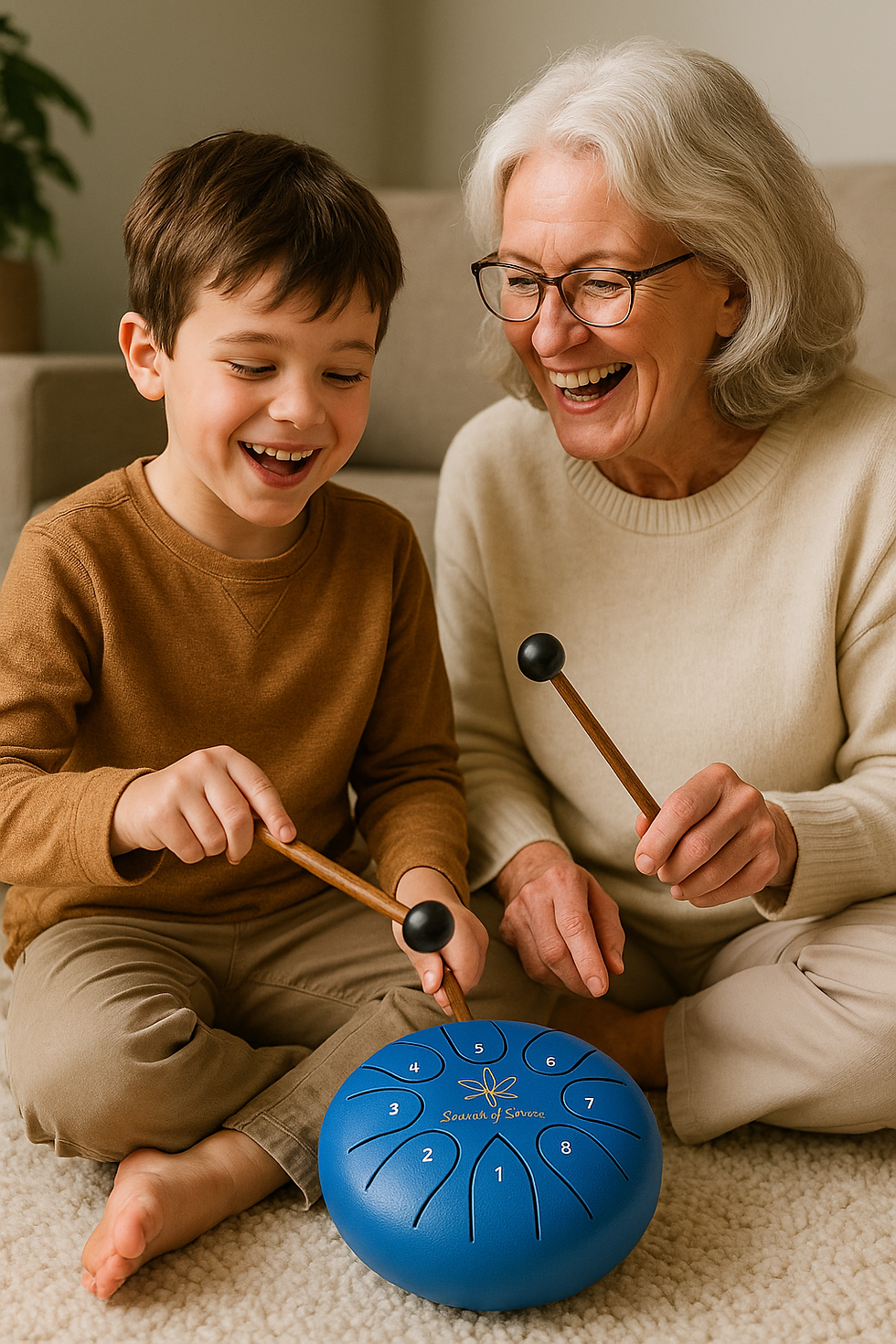The Benefits of Playing Musical Instruments for Children: How Music Builds Emotional Strength
- Adit Bukai
- Jul 18, 2023
- 2 min read
Updated: Aug 6, 2025

Music has a unique way of helping us process emotions, focus our minds, and even relax our bodies. For children, learning to connect with their feelings through music can be incredibly rewarding. If you’re looking for a fun, calming activity that also supports emotional growth, a musical instrument might be just the thing.
One of the biggest benefits of playing musical instruments for children is that it gives them a non-verbal outlet to express their feelings. Whether it's stress, excitement, frustration, or joy, kids often experience big emotions - but don’t always know how to manage them. Playing music helps them self-regulate by translating those emotions into sound.
How Music Helps Kids Express and Manage Emotions
Kids don’t always have the language to explain what they’re feeling. This is where music steps in. When children engage with musical instruments, they’re not only learning to play notes - they’re learning to cope. They’re also gaining a sense of control, accomplishment, and focus. These skills are especially important during early development stages, when emotional regulation begins to take root.
Creating rhythm can feel like a safe way to “speak” what’s on their minds. The simple action of tapping out a beat can help a child shift from a state of agitation to one of calm and clarity. Over time, the routine of playing an instrument—especially one designed with relaxation in mind - can help children self-soothe more easily in everyday life.
Why Calming Instruments Work
Not all instruments are created equal when it comes to supporting emotional well-being. Drums with soft, resonant tones - like steel tongue drums - are uniquely calming and beginner-friendly. These instruments are especially effective because:
They’re intuitive to play (no need to learn music theory)
The sound is naturally soothing and meditative
They reward gentle interaction, encouraging focus over noise
Pair that with a color-coded songbook, familiar tunes, or even a musical story, and you create an experience that’s not just fun, but therapeutic.
Supporting Self-Regulation Through Music
One of the most important developmental milestones in early childhood is learning how to regulate emotions. Musical play provides a structured, enjoyable way for kids to calm their nervous systems. This is why therapists, teachers, and parents alike are turning to calming musical toys that do more than entertain—they help kids thrive.
Whether your child struggles with anxiety, big emotions, or just needs a soothing activity to wind down, adding a calming instrument to your daily routine could be a game changer.
Final Thoughts
Music is more than a hobby—it’s a powerful tool for emotional wellness. The benefits of playing musical instruments for children extend far beyond entertainment. From self-expression to stress relief and emotional resilience, music can play a meaningful role in your child’s development. And the best part? It doesn’t have to be complicated. With the right instrument, your child can start playing - and feeling better - right away.





Comments